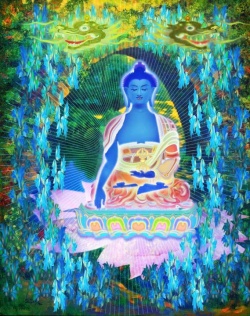Difference between revisions of "Mahasangha"
Jump to navigation
Jump to search
| Line 1: | Line 1: | ||
[[File:1erG.JPG|thumb|250px|]] | [[File:1erG.JPG|thumb|250px|]] | ||
| − | + | (from [[Sanskrit]] [[mahāsaṅgha]], “[[great order of monks]]”), [[early Buddhist school in India that]], in its [[views]] of the [[nature]] of the [[Buddha]], was a precursor of the [[Mahāyāna tradition]]. | |
The [[Cullavagga]] states that the [[Vinaya]] (but not the other [[Pitakas]]) was recited and verified at the [[Council of Vesâlî]]. As I have mentioned elsewhere, {{Wiki|Sinhalese}} and {{Wiki|Chinese}} accounts speak of another Council, the [[Mahâsangha]] or [[Mahâsangîti]]. Though its date is uncertain, there is a consensus of [[tradition]] to the effect that it [[recognized]] a [[canon]] of its own, different from our [[Pali Canon]] and containing a larger amount of popular {{Wiki|matter}}. | The [[Cullavagga]] states that the [[Vinaya]] (but not the other [[Pitakas]]) was recited and verified at the [[Council of Vesâlî]]. As I have mentioned elsewhere, {{Wiki|Sinhalese}} and {{Wiki|Chinese}} accounts speak of another Council, the [[Mahâsangha]] or [[Mahâsangîti]]. Though its date is uncertain, there is a consensus of [[tradition]] to the effect that it [[recognized]] a [[canon]] of its own, different from our [[Pali Canon]] and containing a larger amount of popular {{Wiki|matter}}. | ||
Revision as of 03:44, 25 August 2014
(from Sanskrit mahāsaṅgha, “great order of monks”), early Buddhist school in India that, in its views of the nature of the Buddha, was a precursor of the Mahāyāna tradition. The Cullavagga states that the Vinaya (but not the other Pitakas) was recited and verified at the Council of Vesâlî. As I have mentioned elsewhere, Sinhalese and Chinese accounts speak of another Council, the Mahâsangha or Mahâsangîti. Though its date is uncertain, there is a consensus of tradition to the effect that it recognized a canon of its own, different from our Pali Canon and containing a larger amount of popular matter.
see also: Sangha
